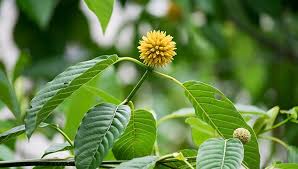For centuries, farmers and in Southeast Asia, specifically in Thailand, Indonesia, and Malaysia, chewed the leaves of a native medicinal plant known as the Kratom. These leaves helped boost energy levels and overcome fatigue while working in the fields.
The culture has now eventually evolved into a modern one where people have begun using this plant for pleasure and relaxation.
After the scientific studies confirming the therapeutic effects of Kratom, it was made easily obtainable by the herbalists and homeopaths. It became a natural supplement for the treatment of various health conditions like anxiety, fatigue, low energy levels, muscular pains, diarrhea, etc. However, Thailand and Malaysia labeled the herb as “a dangerous drug” and banned it in the year 2003 for its anesthetic effects, fearing Kratom could result in dependency and addiction.
However, every time we research about this astounding plant, we come across varying opinions and ideas. There is a peer group that advocates Kratom for its health benefits and therapeutic effects.

Kratom may aid recovery from opiate addiction, but on the other hand, there are also those agencies that debate Kratom is possibly a dangerous drug of abuse. It can cause dependence and addiction in users (with prolonged and regular use).
This article discusses whether Kratom is addictive, and what are the signs and symptoms of Kratom abuse.
Kratom comes from the Mitragyna Speciosa plant, which belongs to the same family as tea and coffee. It is an amazing herb that can deliver divergent effects depending on the amount of dose.
If taken in low dose Kratom works as a stimulant, energy booster and cognition enhancer. Kratom at high dosage it can produce euphoric effects, sedation, and relaxation.
Kratom, which is considered non-addictive by many experts, has been found of great use in aiding people to come off opiate addiction. It delivers the same effects as opiates and other drugs. However, Kratom has recently become the center of a national controversy for being abused by the users and capable of causing addiction.
Kratom was made legal in the US to be used as a dietary supplement which acts as a natural analgesic, painkiller, energy booster as well as Nootropic. Since 2012 the use of Kratom by the US citizens has been mushrooming and becoming more popular with every passing day.
“Kratom bars” offering Kratom tea, Kratom drinks and tinctures are also popping up at a fast rate, making the herbal drug easily available for almost anyone who wishes to try it.
Kratom is now also being sold at head shops, convenience stores, and online.
Kratom impacts consumers within 5 to 10 minutes of consumption. The results may last for up to 2 to 5 hours, depending on the dosage. While it offers several benefits, the herb also has the potential of causing discomfort like nausea, vomiting, headaches, hallucinations, and respiratory problems.
Taking into account these side effects, the FDA has stated concerns considering these anesthetic effects are similar to the withdrawal effects caused by other dangerous drugs.
Making it a possibility that Kratom can potentially be abused, and results in dependency just like cocaine and heroin.
The adverse effects of Kratom addiction on health


According to the FDA and DEA, Kratom can be as addictive as opiates. Over the past few years, many Americans are struggling with a cycle of Kratom addiction and its setback. Using Kratom for a more extended period can pose severe threats to your health.
The possible Kratom effects on one’s health include:
- Nausea and vomiting
- Loss of appetite contributing to weight loss, and even anorexia
- Insomnia
- Skin darkening
- Dry mouth
- Constipation
DEA lists Kratom as “a drug of concern” and the adverse effects of Kratom had prompted the FDA to ban the import of Kratom back in 2014. Just like any other drug, Kratom contains psychoactive compounds that alter the natural chemistry of the brain.
These drugs work by accumulating neurotransmitters or causing a rush of messengers responsible for generating feelings of pleasure. As a result, the user experiences euphoric Kratom effects and feels calm and relaxed.
One time use of this drug may not be harmful, except for the side effects it can produce. But long-term use of Kratom can likely cause interference with the brain’s natural function and cause it to expect Kratom’s presence all the time. This interference is what forms the drug dependence.
The signs and symptoms of Kratom abuse
The Kratom addiction is characterized by the following behavioral changes in a person’s daily life:
- Unnecessarily using Kratom for a long period of time
- Inability to stop the use of Kratom despite knowing its harmful effects
- Social withdrawal and lack of interest in social or recreational activities
- Mood swings and considerable personality shift
- Increased aggressiveness and risk-taking behavior
- Poor performance at work
- Low self-esteem and lack of confidence
- Insomnia and poor eating habits
- Sudden weight loss, loss of muscle mass
These symptoms are an indication that an individual has developed a severe dependency on Kratom, and requires medical intervention. Kratom might not be as harmful as other drugs if the use is not exceeded beyond recommended dosage.
It has the potential of an addictive drug because of its anesthetic effects, and just like any other drug, Kratom can be easily abused.
A person may start out intending to use Kratom recreationally from time to time. But just like many other drugs, the use of kratom can result in cravings.
A person can abuse the drug over and over and can have adverse effects on its daily use.
And just like any other drug, those with Kratom dependency will have to go through withdrawal to get clean and sober again.
When the consumption of Kratom is eventually stopped, it is very likely for the addicts to experience unbearable cravings for this substance. The withdrawal symptoms are like a runny nose, fatigue, muscle or bone pain, nausea, constipation, hostility, aggression, tremors, confusion, or hallucinations.


